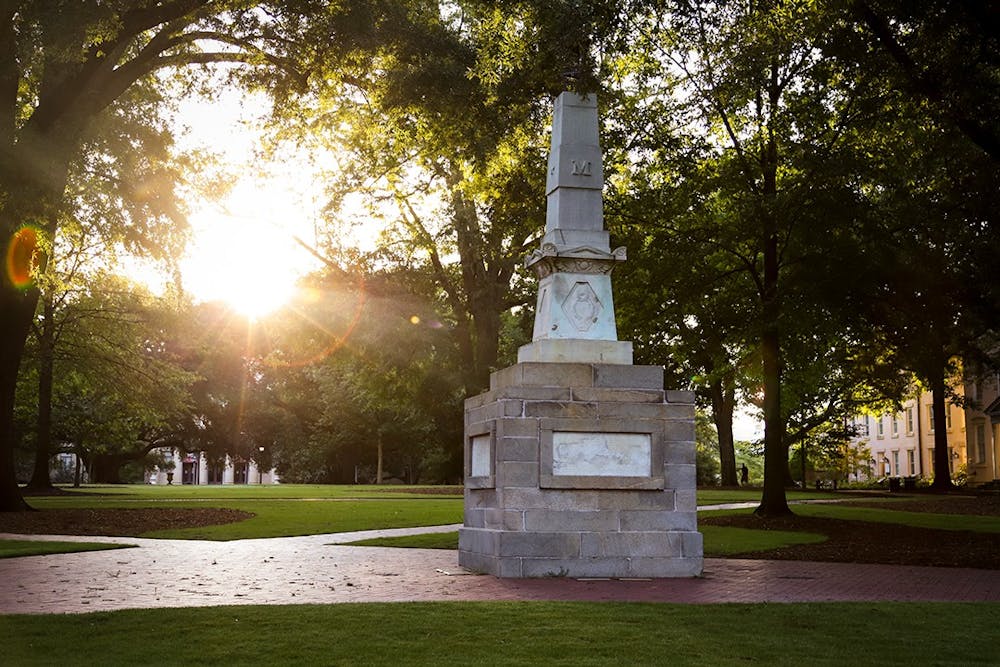In an effort to reduce cost and raise revenue, USC may merge some of the smaller colleges while increasing the capacity of academic programs that are in high demand.
These colleges refer to the different specialized schools that house various majors, like the College of Arts and Sciences and College of Engineering.
Faculty senate chair Mark Cooper said the specific colleges and programs will be identified in a final report to be released in early December.
"We're really focused on the process by which you would determine which colleges rather than a specific [college]. At the moment the process is more important," Cooper said.
The recommendation of merging some smaller colleges was a part of six revenue-generating recommendations from an external consultant from the Educational Advisory Board (EAB). The recommendations were given to the university's Committee of 9, created to work with the EAB.
Merging some of the smaller colleges at the university would scale down "administrative overhead."
Cooper said an example of reducing administrative overhead costs is if there are two deans or two associate deans in separate colleges. By merging the colleges, there will only be one dean or associate dean.
The Daily Gamecock obtained an email sent to members of the faculty senate on Nov. 5. The email further explained remarks made by Cooper during the senate meeting on Nov. 4.
The semester tuition revenue for the fall was better than expected, according to the email, but the university expects to see a decrease in revenue with more in-state students attending and the anticipated decreased enrollment expected after the 2026-2027 year.
"There are not many currently known ways to raise revenue," Cooper said in the email.
The Committee of 9 received a "preliminary report" from the EAB consultant and will begin to assess the feasibility of the recommendations. The "reorganization of academic programs" was included in these recommendations, but "the elimination of academic programs is not on the list," according to Cooper's email.
The Committee of 9 will submit an evaluation to the oversight group called the Gang of 6. This group includes the CFO, the provost, the VP for student affairs, the VP for diversity, equity and inclusion, Tayloe Harding as the Council of Academic Dean’s representative and Cooper, according to the email.
To reduce instructional costs, the EAB recommends reallocating instructional resources and decreasing its "reliance on adjuncts." An adjunct professor is a professor who is on a limited-term contract.
The EAB also recommends expanding the capacity of programs that are in high demand for incoming students. This would allow the programs to accept more students, increasing the revenue from tuition.
Colleges at the university are given money for each student in its program.
"[Colleges] would also have to spend more money to pay for additional faculty to teach those additional students. So it's not only a net gain in tuition," Cooper said. "There's also some costs as well."
Increased marketing for masters and professional programs with high employer demand and reallocating resources to higher performing doctoral programs are additional recommendations the EAB made in its report.
The last recommendation the EAB made was to decrease the reliance on on-campus students, and to do that the university will need to develop its online education, according to the email. This is also part of President Bob Caslen's strategic plan for the university.
The findings will be discussed at the next board of trustees meeting on Nov. 13.

